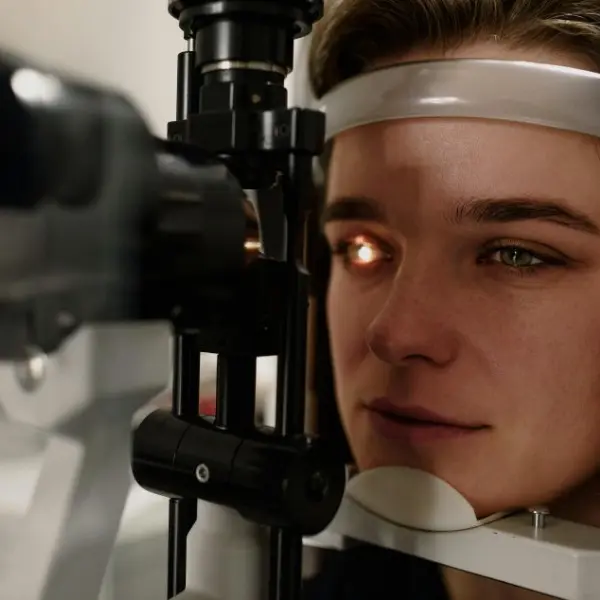
- Eyecare Tips & Tricks

- News
Keeping an Eye on Your Health: A Guide to Vision Care and When to Schedule Eye Exams

Today, let’s talk about something that often gets overlooked in our overall health: our eyes. Eye health isn’t just about having perfect vision; it’s about ensuring your eyes stay healthy and functional throughout your life. So, whether you’re someone who’s used to routine checkups or have never had an eye exam before, here are some essential tips to keep your eyes in great shape and understand when it’s time to see a professional.
Why Eye Health Matters
Good vision helps us navigate the world safely, connects us to the beauty around us, and contributes to our productivity and quality of life. But our eyes are sensitive organs, susceptible to ageing, lifestyle impacts, and various medical conditions. Routine checkups don’t just detect vision changes; they can also reveal signs of diseases such as diabetes, hypertension, and even certain types of cancers, often before other symptoms appear.
The Basics of Eye Health
Protect Your Eyes from UV Rays: Just like your skin, your eyes can be damaged by the sun. Over time, excessive exposure to UV rays can increase the risk of cataracts and macular degeneration. Invest in sunglasses with 100% UVA and UVB protection, and if you wear prescription glasses, consider adding UV-protective coatings to your lenses.
Follow the 20-20-20 Rule: In today’s screen-heavy world, digital eye strain is common. To alleviate it, follow the 20-20-20 rule: every 20 minutes, look at something 20 feet away for at least 20 seconds. This simple habit can help reduce eye strain and dryness associated with prolonged screen time.
Eat a Balanced Diet: Foods rich in omega-3 fatty acids (like fish), vitamin C, vitamin E, and zinc are excellent for eye health. Leafy greens, nuts, and citrus fruits provide these nutrients and are thought to help reduce the risk of cataracts and macular degeneration.
Stay Hydrated: Dry eyes can be uncomfortable, especially if you spend a lot of time in air-conditioned environments or are frequently on digital devices. Drinking enough water helps keep your eyes lubricated and functioning well.
When Should You Schedule Eye Checkups?
Routine Vision Exams: For adults, an annual eye exam is generally recommended, especially if you wear glasses or contact lenses. Even if you don’t have any vision problems, seeing an eye care professional every 1-2 years is wise to catch any early signs of eye conditions. For children, routine eye exams are essential as early as six months, then at age three, before starting school, and every year after that.
As You Age: After 40, our risk for age-related eye conditions like glaucoma, cataracts, and macular degeneration increases. Yearly eye exams become crucial, as early detection can slow the progression of these conditions.
If You Notice Any Sudden Changes: Blurred vision, floaters, flashes of light, or loss of peripheral vision are all red flags. These symptoms could indicate retinal detachment, glaucoma, or other urgent conditions. Don’t ignore these signs; schedule an appointment immediately if you notice any changes.
If You Have a Medical Condition: People with diabetes, hypertension, or autoimmune disorders should have regular eye exams, as these conditions can impact eye health. Your eye doctor may recommend more frequent checkups to monitor any potential effects on your vision.
A Final Note
Maintaining eye health is an investment in your future well-being. At Laser Vision, we’re here to help you see clearly, from regular checkups to advanced treatments. Your eyes are with you for life—let’s give them the care they deserve. Remember, healthy vision is an important part of your overall health, so make it a priority.
Reviews







